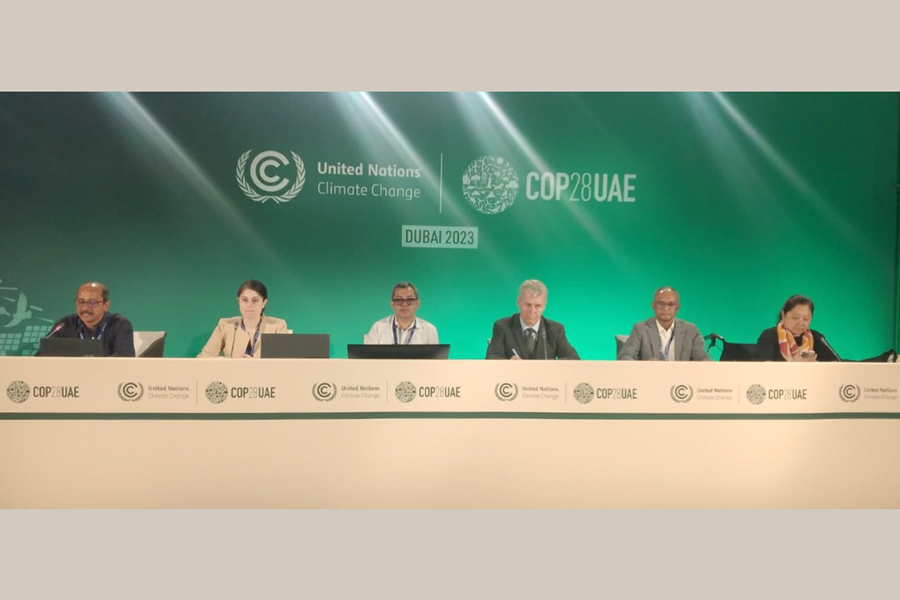COP28: MVC civil society leaders for tangible climate targets

Published :
Updated :

Civil society leaders from the most vulnerable countries (MVCs) have emphasised the critical need for tangible National Determined Contribution (NDC) targets from major carbon emitters.
There should be concrete actions to achieve the 1.5-degree temperature goal outlined in the Paris Agreement, they told a press conference titled "LDC’s & MVC Peoples’ Expectations and COP 28" at the COP28 Climate Conference Centre in Dubai, according to a press release.
They also called on developed countries to fulfil their longstanding commitment of US$100 billion in financing, as promised during the COP15.
Representatives from diverse civil society organisations (CSOs) took part in the event, including Md Ziaul Hoque Mukta from Campaign for Sustainable Rural Livelihoods (CSRL), Md Shamsuddoha from Centre for Participatory Research & Development (CPRD), Shamim Arfeen from An Organization for Socio-Economic Development (AoSED), Atle Solberg from the Platform on Disaster Displacement (PDD), Samah Hadid of the Norwegian Refugee Council (NRC) and Lidy Nacpil representing the Asia Pacific Movement on Debt & Development (APMDD).
Aminul Hoque, from EquityBD, Bangladesh, delivered the keynote address outlining civil society's expectations.
He emphasised the challenge associated with enforcing the Paris Agreements, pointing out the absence of monitoring and reporting mechanisms for carbon emissions reduction.
He criticised the COP28 presidency for denying the scientific basis behind achieving the Zero Emission target through the phased-out use of fossil fuels.
Mr Hoque outlined key demands: developed countries must follow scientific progress and set realistic targets to achieve the 1.5-degree temperature goal, pay their cumulative overdue of $100 billion in climate finance, design a new collective finance discourse focusing on MVCs priorities, and define the synthesis of National Adaptation Plans as the Global Goal on Adaptation.
Mr Shamsuddoha expressed concern about the current mitigation process, stressing the need for a mandatory timeline for submitting long-term mitigation strategies and achieving zero emissions by 2050.
Ms Nacpil criticised the overreliance on the private sector by International Financial Institutions (IFIs) and called for a transformation of public finance institutions to be more equitable, democratic, and sustainable.
Mr Solberg raised alarm about climate-induced displacement, calling for effective measures to support affected countries.
Mr Arfeen highlighted the availability of trillions of dollars but emphasised the necessity for a pro-poor finance mindset among global leaders.
Ms Hadid voiced concerns about climate change in the Middle East and North Africa, urging states to increase financing for climate adaptation in fragile and conflict-affected contexts.
Mr Mukta of CSRL urged Country Parties to challenge the COP Presidency's statement on the end of fossil fuels, emphasising its contradiction with established climate science and the formation of UNFCCC.
tonmoy.wardad@gmail.com


 For all latest news, follow The Financial Express Google News channel.
For all latest news, follow The Financial Express Google News channel.